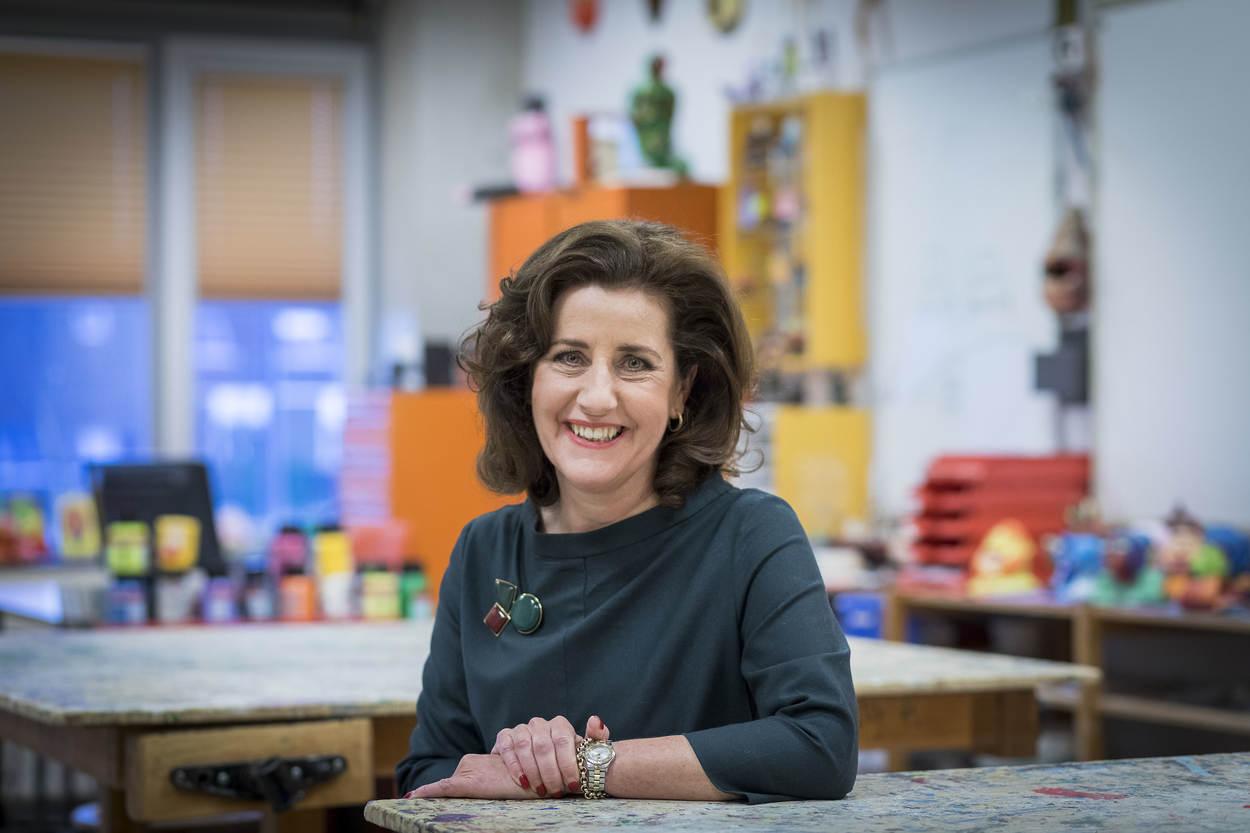Minister embraces internationalisation, but sees the downside of Englification

Last week, the minister of education sent her long-awaited vision (pdf, in Dutch) on internationalisation to the government. Universities and universities of applied sciences are happy with her letter, while student organizations are vocally critical.
In her letter, Van Engelshoven tries to find a balance: she wants to encourage internationalisation, but not to be blind for the downsides of it. As she summarizes it herself: “I want to keep facilitating internationalisation where suitable, and recover the balance where necessary.”
There are numerous advantages, she says. The quality of the education improves if students learn intercultural skills, and the economy is begging for highly-educated employees.
Disadvantages
She also sees downsides, however. There are concerns, for example, about the level of English used, the accessibility of study programmes, and the financial motivation to just keep recruiting as many foreign students as possible.
Choosing English as the main language for education needs to add value to the program, she thinks – otherwise, programmes simply shouldn’t do it. “Simply translating a Dutch programme to an English one isn’t sufficient, and is in no way relevant for internationalisation.” Some programmes may have thought too lightly about it, she fears.
Her solution: conscious language policies. Codetermination groups will need to agree to the language used in study programmes. The Education Inspection will study whether educational institutions all have a correct ‘code of conduct’ to judge that choice by. Additionally, education assessor NVAO will keep an eye on the institutions: in its periodic inspections, it will also check the language proficiency of teachers, for instance.
In the meantime, two universities (Maastricht and Twente) are dealing with a lawsuit started by the association Beter Onderwijs Nederland (BON) against their English-language education. The minister might not be saying it outright, but it seems as though her letter’s a strong point against BON. The law currently says education should, in principle, be taught in Dutch – but the minister says that doesn’t necessarily have to be the case, as long as study programmes make a well-informed decision.
Influx
In addition, Van Engelshoven wants to give universities and universities of applied sciences more options to control the influx of foreign students, just like they’d asked of her in their own ‘internationalisation agenda’. They’ll be allowed to limit the number of non-European students if there are too many, for example, or set a maximum number of students in the English-language study programmes (so there’ll always be enough room for Dutch students). All these plans will be developed further.
Student organizations ISO and LSVb respond with criticism, not in the least because the minister doesn’t mention much about the costs of internationalisation. “The minister is asking universities and universities of applied sciences to do all sorts of things for internationalisation, and yet she’s not investing a dime in it herself,” ISO chairwoman Rhea van der Dong says. “In the coming years, she’s even going to introduce further cutbacks. If internationalisation is so important to her, and she wants to do it right, she’ll have to spend money on it, too.”
Half the work
“Minister van Engelshoven has only done half the work,” agrees LSVb chairman Tariq Sewbaransingh. “She says she sees the downsides of Englification, but she’s afraid to actually do something about it. The problem is that Englification is, in part, a business model. We want an active council to check whether Englification is done for the right reasons.”
Universities and universities of applied sciences would also have liked to receive more funds, for example to realize the ambition to have more Dutch students study abroad for a period of time. “The government could have shown more actions, instead of just pretty words,” says Thom de Graaf, chairman of the Vereniging Hogescholen, the association of universities of applied sciences.
They’re also critical of the additional quality assurances Van Engelshoven has announced, such as the Educational Inspection research and the inspection by accreditation organization NVAO. These, they fear, will lead to more bureaucracy.
Encouraging
Still, the organizations are ‘cautiously optimistic’, as Vereniging Hogescholen says. The minister, at least, supports the direction they’re heading in. Van Engelshoven honours many of their wishes, and continues to fully encourage internationalisation.
Translation: Indra Spronk